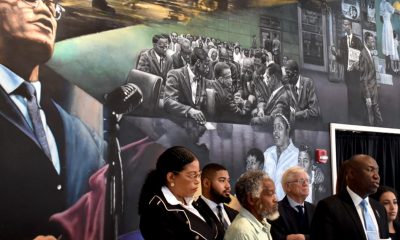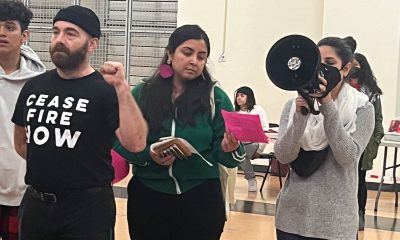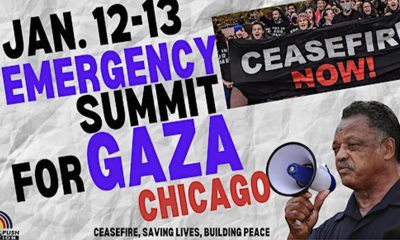World
Protests Highlight Troubles of Ethiopian Jews in Israel

An Israeli protester holds a sign in Hebrew reading “violent policeman should be sentenced” during clashes between Israel’s, mainly Jewish Ethiopians and Israeli riot police during a protest against racism and police brutality in Tel Aviv, Israel, Sunday, May 3, 2015, as several thousand people from Israel’s Jewish Ethiopian minority protest, shutting down a major highway and clashing with police on horseback long into the night. The protest was mostly peaceful during the day, but by nightfall became violent with at least 20 officers were hurt and “multiple protesters” arrested, Police Spokesman Micky Rosenfeld said. (AP Photo/Oded Balilty)
ARON HELLER, Associated Press
JERUSALEM (AP) — When Israel secretly airlifted waves of Ethiopian Jews in the 1980s and 1990s, saving them from war and famine in the Horn of Africa, it was celebrated as a triumphant show of unity for the Jewish people.
Thirty years after the first large groups of Ethiopians arrived, few in the community are celebrating. Israel’s black Jewish minority is plagued by poverty, crime and unemployment, and their brewing frustrations over racism and lack of opportunity have boiled over into an unprecedented outburst of violent anti-police protests.
The unrest has laid bare the struggles of absorption and the rocky attempts of the state to integrate them into a society for which they were ill-prepared. Caught off-guard, Israel’s leaders are vowing to respond to the community’s grievances.
President Reuven Rivlin said Monday the outcry “exposed an open, bleeding wound in the heart of Israeli society.”
“We must look directly at this open wound. We have erred. We did not look, and we did not listen enough,” said Rivlin, whose largely ceremonial office is meant to serve as a moral compass.
On Sunday, protesters shut down a major highway in Tel Aviv, hurled stones and bottles at police and overturned a squad car. They were dispersed with tear gas, water cannons and stun grenades. More than 60 people were injured and 40 arrested in the second such protest in recent days, and demonstrations are expected to continue.
The unrest followed video that emerged last week of an Ethiopian Israeli soldier being beaten by police in what appeared to be an unprovoked attack.
Prime Minister Benjamin Netanyahu met Monday with community leaders and with the soldier who was attacked, telling him “we’ll have a change a few things.” Closing the gaps in Israeli society, however, will be a difficult task.
Ethiopian Jews trace their ancestors to the ancient Israelite tribe of Dan. The community was cut off from the rest of the Jewish world for more than 1,000 years.
Under its “Law of Return,” Israel grants automatic citizenship to any Jews. In the early 1980s, after a period of debate about recognizing the community as Jews, Israel covertly began to bring in thousands of Ethiopian immigrants. In 1991, thousands more came in a secret airlift carried out over two days.
The new arrivals struggled greatly as they made the transition from a rural, developing African country into an increasingly high-tech Israel. Over time, many have integrated more into Israeli society, serving in the military and police and making inroads in politics, sports and entertainment. Some prominent community figures speak Hebrew without a trace of an accent and are indistinguishable from other Israelis in everything but skin color.
Overall, however, the Ethiopians are an underclass. Many complain of racism, lack of opportunity and routine police harassment.
About 120,000 Ethiopian Jews live in Israel today, a small minority in a country of 8 million. Many older Ethiopians work menial jobs — men as security guards and women as cleaners and cashiers. They live with their families in rundown city neighborhoods and impoverished towns with high rates of crime and domestic violence.
Their children have made gains, but overall, the younger generation is still struggling.
A 2012 study by the Myers-JDC-Brookdale Institute said that 41 percent of Ethiopian Israelis lived below the poverty line, compared with 15 percent for the overall Jewish population. The average income of Ethiopian Israelis was about two-thirds of their Jewish counterparts. Just 5 percent had college degrees, compared with 28 percent for the broader Jewish population. According to Israel’s Prison Service, one-fifth of the inmates in juvenile facilities are Ethiopian Israelis.
Ethiopian Israelis also allege repeated discriminatory slights and, at times, outright racism. In the late 1990s, it was discovered that Israel’s health services were throwing out Ethiopian Israeli blood donations over fears of diseases contracted in Africa. Some landlords have also refused them as tenants, and accusations have been raised that Israel has deliberately tried to curb their birth rates.
“Anyone who attended the protest yesterday experienced at one point in their life humiliation based on nothing but skin color,” said Mehereta Baruch-Ron, a Tel Aviv deputy mayor of Ethiopian descent, who added that police did not believe she was a city official and blocked her from joining the protest. “We have had enough. It is time to do something.”
Job Goshen, an Ethiopian Israeli social worker who works as a job counselor, said the problems stem from decades of well-intentioned but flawed policies.
He said that while the government encourages Ethiopians to enter the labor force, it also imposes unnecessary job requirements that make it difficult for them to get hired. He said a truck driver’s license, for instance, requires a computerized “theory” test that poorly educated Ethiopians struggle to pass.
“Most of the older Ethiopians don’t have the education. But they have other abilities that are not taken into account,” he said. “As a result, they are stuck in the same jobs — services, security, cleaning — and they don’t get ahead.”
Younger Ethiopians are better equipped for the work world, he said, but also face their own unique challenges, especially after completing compulsory military service.
Unlike their other Jewish counterparts, Ethiopians do not have parents and siblings who can steer them toward university studies or good jobs after leaving the army. Many come from large or broken homes and must support their parents or younger siblings. Goshen said that while he has not experienced overt racism, his friends, relatives and clients all have.
Fixing these problems will be a long process that will require the government and the community to work together.
“It has to come from both sides,” he said. “The government can’t impose a solution. It has to consult with us.”
Shlomo Molla, a former lawmaker of Ethiopian origin, said hope for change lies with the generation born in Israel and less intimidated by the establishment.
“I call upon these young people to continue resolutely, so that perhaps they might succeed where my generation failed,” he wrote in the Maariv daily. “The next stage of this battle should be civil disobedience. We should stop enlisting in the army, not join the police, and stop paying taxes, because if the state doesn’t take its citizens into account, the citizens are also permitted not to take the state into account.”
Stephane Dujarric, the spokesman for the U.N. secretary-general, told reporters Monday that “the fight versus racism and discrimination is a universal one. Obviously, people have a right to demonstrate peacefully, and we encourage the Israeli authorities to deal with the issues.”
The images of black Israelis clashing with police have drawn comparisons to the unrest in the U.S. following deadly altercations between police and black men or boys.
But Fentahun Assefa-Dawit, executive director of the advocacy group Tebeka, said there were few similarities. He said Ethiopian-Israelis have a different set of issues related to integration into Israel’s modern, fast-paced society — as opposed to maintaining a distinct subculture.
He called on Netanyahu to make Ethiopian absorption a keystone of his new administration, which is expected to take office in the coming days.
“Before it is too late, we call on the prime minister to take the matter into his own hands,” he said. “In four years, I would want to see this prime minister say ‘I’m glad I did’ instead of ‘I wish I had.'”
___
Associated Press writer Cara Anna at the United Nations contributed to this report.
___
Follow Heller on Twitter @aronhellerap
Copyright 2015 The Associated Press. All rights reserved. This material may not be published, broadcast, rewritten or redistributed.
Barbara Lee
Congresswoman Barbara Lee Issues Statement on Deaths of Humanitarian Aid Volunteers in Gaza
On April 2, a day after an Israeli airstrike erroneously killed seven employees of World Central Kitchen (WCK), a humanitarian organization delivering aid in the Gaza Strip, a statement was release by Rep. Barbara Lee (D-CA-12). “This is a devastating and avoidable tragedy. My prayers go to the families and loved ones of the selfless members of the World Central Kitchen team whose lives were lost,” said Lee.

By California Black Media
On April 2, a day after an Israeli airstrike erroneously killed seven employees of World Central Kitchen (WCK), a humanitarian organization delivering aid in the Gaza Strip, a statement was release by Rep. Barbara Lee (D-CA-12).
“This is a devastating and avoidable tragedy. My prayers go to the families and loved ones of the selfless members of the World Central Kitchen team whose lives were lost,” said Lee.
The same day, it was confirmed by the organization that the humanitarian aid volunteers were killed in a strike carried out by Israel Defense Forces (IDF). Prior to the incident, members of the team had been travelling in two armored vehicles marked with the WCF logo and they had been coordinating their movements with the IDF. The group had successfully delivered 10 tons of humanitarian food in a deconflicted zone when its convoy was struck.
“This is not only an attack against WCK. This is an attack on humanitarian organizations showing up in the direst situations where food is being used as a weapon of war. This is unforgivable,” said Erin Gore, chief executive officer of World Central Kitchen.
The seven victims included a U.S. citizen as well as others from Australia, Poland, the United Kingdom, Canada, and Palestine.
Lee has been a vocal advocate for a ceasefire in Gaza and has supported actions by President Joe Biden to airdrop humanitarian aid in the area.
“Far too many civilians have lost their lives as a result of Benjamin Netanyahu’s reprehensible military offensive. The U.S. must join with our allies and demand an immediate, permanent ceasefire – it’s long overdue,” Lee said.
Bay Area
Nigerian Bank Chief Killed in Helicopter Crash on Way to Superbowl XVIII
According to the San Bernardino County Sheriff’s Dept., the crash occurred near Nipton, on the edge of the Mojave Desert Preserve. The poor weather conditions — rain, wind and snow showers—may have contributed to the accident, although the investigation is not complete. All six aboard were killed. Herbert Wigwe, 57, founded Access Bank in 1989, and it became the country’s largest competitor, Diamond Bank in 2018.
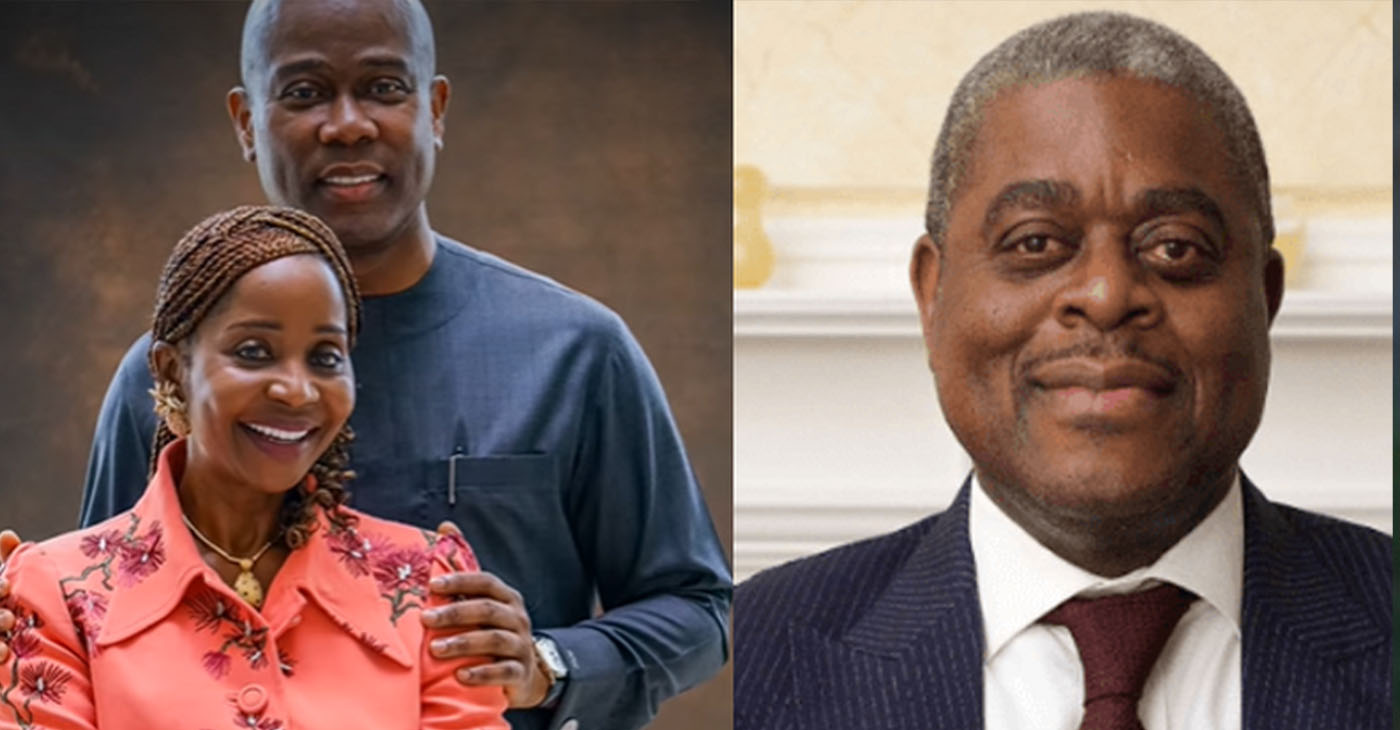
By Post Staff
The co-founder of one of Nigeria’s largest banks died with his wife, son and three others when the helicopter transporting them from Palm Springs, Ca., to Boulder City, Nev. to attend the fifty-eighth SuperBowl at the stadium outside Las Vegas crashed on Feb. 9.
According to the San Bernardino County Sheriff’s Dept., the crash occurred near Nipton, on the edge of the Mojave Desert Preserve. The poor weather conditions — rain, wind and snow showers—may have contributed to the accident, although the investigation is not complete. All six aboard were killed
Herbert Wigwe, 57, founded Access Bank in 1989, and it became the country’s largest competitor, Diamond Bank in 2018.
More recently, Wigwe was planning to open a banking service in Asia this year after making successful expansions to other parts of Africa, including South Africa, Kenya, and Botswana.
Nigerian President Bola Tinubu described Wigwe’s death as an ‘overwhelming tragedy.”
Oakland resident and Nigerian immigrant Kayode Gbadebo agrees with Tinubu. He met Wigwe in Nigeria but crossed paths with him in London in 2006. Wigwe, he said, “took risks.”
He was young and people thought he couldn’t do what he intended, which was not so much about money but community.
“He was more like Jesus in washing the feet of the poor– Wigwe was culturizing community,” Gbadebo said.
“There will never be another like him. This is a deep, deep loss” and he hopes everyone will eventually “be comforted.”
He was also disappointed that a replacement has already been named even before Wigwe is buried. “It is not reasonable. You don’t want a vacuum, but it’s” not fair to the family, Gbadebo observed.
Wigwe had also been working to solve the migration issues from African countries, believing that “investing in higher education was key to controlling mass migration, which “is destabilising countries across the world,” BBC News reported.
“We need to take a holistic approach to address global migration, starting with our traditional framework for international development,” Wigwe wrote.
To that end, according to BBC News, Wigwe was preparing to open Wigwe University in Niger, where he was from.
“The best place to limit migration is not in the middle of the Mediterranean or the English Channel or the Rio Grande. It is in the home countries that so many migrants are so desperate to leave,” he wrote, saying his university was an opportunity for him “to give back to society.”
Besides Wigwe and his wife, Chizoba Nwuba Wigwe, and one son, two crew members and Bimbo Ogunbanjo, former group chairman of the Nigerian Exchange Group Plc, were also killed in the crash.
According to Wikipedia, three other children survive Wigwe.
In his statement reported in People magazine, Tinubu described Wigwe as “a distinguished banker, humanitarian, and entrepreneur.”
“I pray for the peaceful repose of the departed and ask God Almighty to comfort the multitude of Nigerians who are grieving and the families of the deceased at this deeply agonizing moment,” the president said.
He added, “Their passing is an overwhelming tragedy that is shocking beyond comprehension.”
Besides feeling the tremendous loss, Gbadebo fears the disorder and greed that will follow. “It’s a mess,” he said.
People magazine, BBC News and Wikipedia were the sources for this report.
Activism
No Valid Reason for Failing to Condemn Hamas’ Act of Terrorism
On Oct. 7, 2023, Hamas terrorists crossed the Israel-Gaza border and indiscriminately slaughtered Israeli civilians in their homes. They killed nearly 300 young people at a music festival and took at least 200 hostages including 30 children. The atrocities they committed included massacres of families, abduction of the elderly and children, burning of babies and rapes of women.
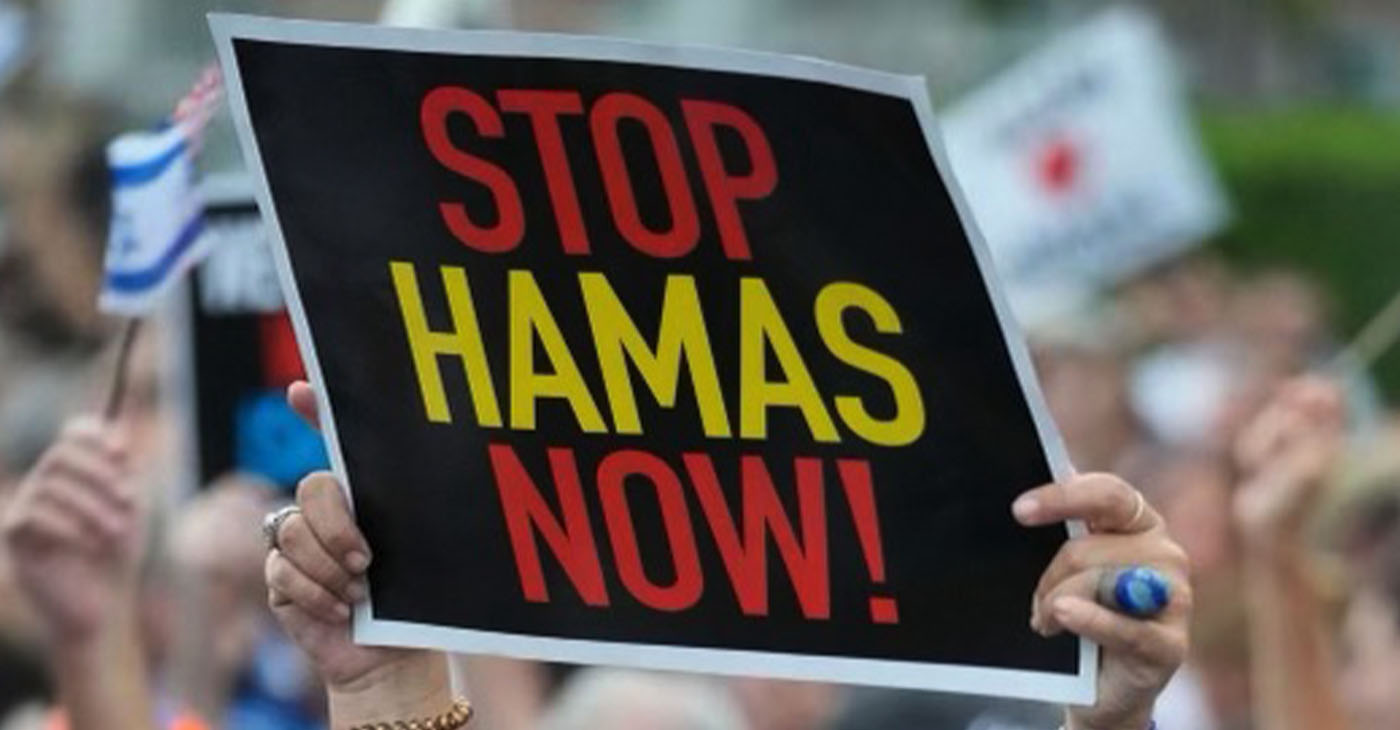
By Joe W. Bowers Jr.
California Black Media
OPINION
On Oct. 7, 2023, Hamas terrorists crossed the Israel-Gaza border and indiscriminately slaughtered Israeli civilians in their homes.
They killed nearly 300 young people at a music festival and took at least 200 hostages including 30 children. The atrocities they committed included massacres of families, abduction of the elderly and children, burning of babies and rapes of women.
The horrific surprise attack deserves universal and unequivocal condemnation. President Joe Biden called what Hamas did “an act of sheer evil” and pledged to defend the lives of Israelis and Jewish Americans.
He said, “Let there be no doubt. The United States has Israel’s back. We’ll make sure the Jewish and democratic state of Israel can defend itself today, tomorrow, as we always have.”
Hamas killed approximately 1,400 people including 32 Americans. Citizens from 40 different countries including the United Kingdom, France, Mexico, and Thailand were killed or reported missing.
Hamas fighters breached Israel’s border defenses on the final day of Sukkot while soldiers were away due to the holiday and launched attacks on 22 towns outside the Gaza Strip. This security lapse has been described as a catastrophic failure of Israel’s intelligence agencies..
Hamas is an extremist Islamist militant organization that has governed the Gaza Strip since 2007. It is recognized as an Iranian-backed terrorist group by the U.S. and the European Union and has a long history of violence against Jews and Palestinians, the latter of whom they often use as human shields.
While there have been plenty of groups who have unequivocally condemned the massacres, there are a number who haven’t, including organizations such as the Democratic Socialists of America (DSA), Black Alliance for Peace, Red Nation, and independent Black Lives Matter (BLM) chapters (excluding the national Black Lives Matter Global Network Foundation).
The DSA San Francisco chapter put out a statement on Oct. 9 that said, “Socialists support the Palestinian people’s, and all people’s, right to resist and fight for their own liberation. This weekend’s events are no different.”
Student organizations at a number of universities and colleges in California signed a solidarity statement titled “Resistance Uprising in Gaza” from Students for Justice in Palestine (SJP). The statement attributes the violence of the Hamas attack to what it refers to as Israeli apartheid and occupation.
The SJP statement written by Bears for Palestine at UC Berkeley says, “We support the resistance, we support the liberation movement, and we indisputably support the Uprising.” Essentially, these students are indirectly associating themselves with Hamas’ barbaric acts under the guise of “resistance.”
Signing the statement were 51 student organizations including those from Stanford, UC Berkeley, UCLA, UC Davis, UC San Diego, CSU Sacramento, and USC.
A statement signed by 34 Harvard student organizations said, “We, the undersigned student organizations, hold the Israeli regime entirely responsible for all unfolding violence.”
Many university leaders, where these students are enrolled, have been guilty of failing to unequivocally condemn Hamas and for inadequately addressing their students’ expressed support for Hamas.
Several Stanford faculty members, including three Nobel laureates, condemned Stanford’s administrators’ weak response to acts of terrorism and the expression of pro-Hamas sentiments by students on campus.
Israel unilaterally withdrew from Gaza in 2005. It dismantled 21 Israeli settlements in the territory and handed them over to the Palestinian Authority.
The assault by Hamas on Oct. 7 was not an ordinary clash with Israel. Hamas’ actions resulted in the deadliest single day for Jews since the Holocaust.
While there are valid reasons for protesting Israel’s treatment of Palestinians and a real reckoning with the Israeli government on its policies is long overdue, nothing justifies Hamas’ attack.
Israelis who were killed largely had nothing to do with the conditions of Palestinians in Gaza. Some of the victims weren’t even Israeli — they were just tourists.
The students blaming Israel for the atrocities committed by Hamas have faced criticism. Some groups have withdrawn their endorsements because of the backlash aimed at them. Others have doubled down on their activism. SJP held a “National Day of Resistance” on several campuses.
Several CEOs have asked Harvard to disclose a list of members from the organizations assigning responsibility to Israel to insure they do not hire any of their members. A Berkeley law professor has also urged firms not to hire his students who have publicly blamed Israel for the war.
This California Black Media report was supported in whole or in part by funding provided by the State of California, administered by the California State Library.
-

 Activism4 weeks ago
Activism4 weeks agoOakland Post: Week of March 20 – 26, 2024
-

 #NNPA BlackPress3 weeks ago
#NNPA BlackPress3 weeks agoCOMMENTARY: D.C. Crime Bill Fails to Address Root Causes of Violence and Incarceration
-

 #NNPA BlackPress3 weeks ago
#NNPA BlackPress3 weeks agoMayor, City Council President React to May 31 Closing of Birmingham-Southern College
-

 #NNPA BlackPress3 weeks ago
#NNPA BlackPress3 weeks agoCOMMENTARY: Lady Day and The Lights!
-

 #NNPA BlackPress3 weeks ago
#NNPA BlackPress3 weeks agoFrom Raids to Revelations: The Dark Turn in Sean ‘Diddy’ Combs’ Saga
-

 #NNPA BlackPress3 weeks ago
#NNPA BlackPress3 weeks agoBaltimore Key Bridge Catastrophe: A City’s Heartbreak and a Nation’s Alarm
-

 #NNPA BlackPress3 weeks ago
#NNPA BlackPress3 weeks agoBaltimore’s Key Bridge Struck by Ship, Collapses into Water
-

 Activism3 weeks ago
Activism3 weeks agoOakland Post: Week of March 27 – April 2, 2024



